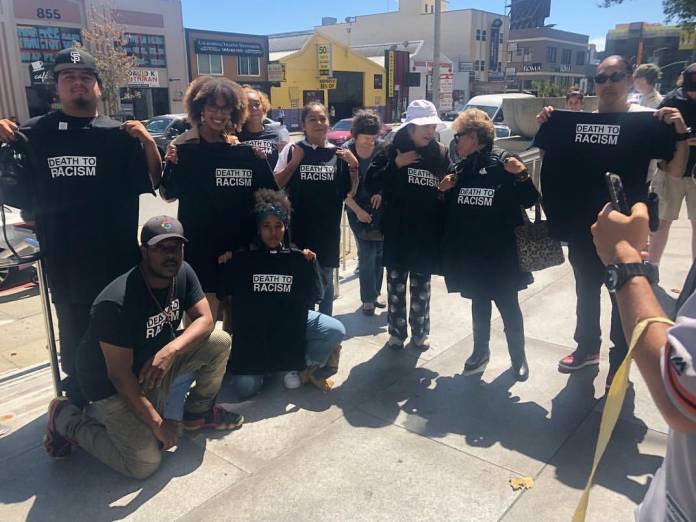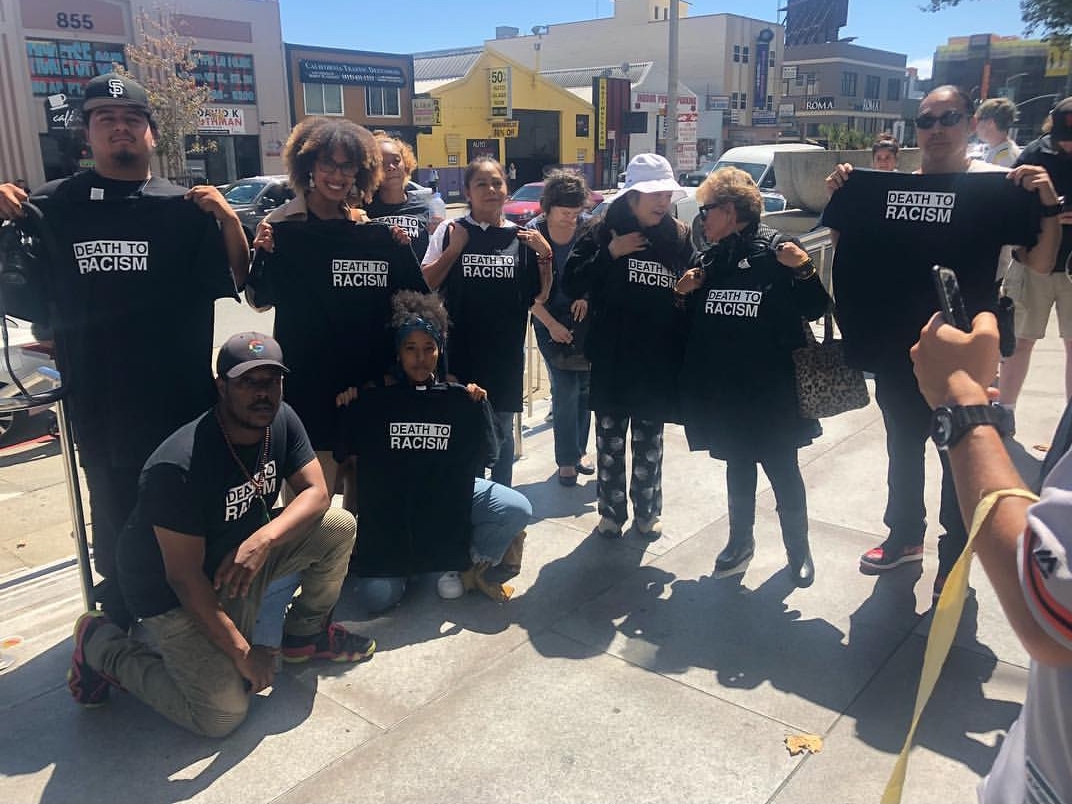
Yesterday, I sat in the Hall of Justice anticipating a wave of Stop Crime SF members who planned to pack the courtroom with the intent of sending a message to Judge Christopher Hite in the DeShawn Patton case. Patton is a 21-year-old black man whose case has been under extreme scrutiny by this anti-crime coalition. They’re hoping that their organizing, vociferous critique, and visibility will sway Judge Hite to make an example out of Patton, and send him to prison instead of suspending his sentence.

On the anti-crime group’s web site, the organization claims to “understand the larger issues of economic displacement and inequity that contribute to crime rates.”Yet the demographics of this coalition seems to be a fairly homogenous – mostly white people attempting to pressure a black judge to be tough on crime.
Stop Crime SF member Joel Engardio told me “…we don’t want to lock people away and throw away the key. But this case in particular, it feels like some people might need a time out because there’s so many felonies he [Patton] has been indicted for.”
I’m sorry, but prison is not a “time out.” And it’s not a rehabilitation center. Prison is an inhumane bastille that offers no cure, especially for people struggling with trauma and/or socio-economic issues. And if we really wanted to fix crime, we would be funding programs that help lessen income inequity.
The pressure had no immediate impact: The sentencing of Patton was rescheduled. Due to reports filed by two probation officers that included new information, along with a delayed update, we learned in advance of the hearing that the sentencing was pushed to October 3. Still, as resilient as ever, ten members of Stop Crime SF showed up to the hearing to make their presence was known.
The hearing was relatively short, lasting about eight minutes at most. The court was empty except for the legal staff, the court officers and Stop Crime SF. Ultimately, the court agreed to delay the case because of improper materials, new information, and a motion to exclude and seal certain documents.
But the irony of this situation came after the hearing ended, when the members of Stop Crime SF left the court and walked into an anti-police-brutality vigil held by Mothers on the March. The group had celebrated their 100th week of filling the court stairs with community members demanding police accountability. The names of young black and brown victims were projected into a microphone one by one: Alex Nieto, Oscar Grant, Jesus Delgado. Not one Stop Crime SF member stopped to observe.
I couldn’t help but draw the parallels between the mothers of dead victims demanding accountability for police brutality in front of the courts to these white folks demanding accountability for two black men who have no affect or personal claim to their livelihoods. Could they not see their hypocrisy?
If accountability was important, along with their claims of equity, surely someone would have stopped to listen to the rally. But the was not the case. Stop Crime SF wants so desperately to be heard and to be visible, but easily disregard marginalized voices, like these mothers and like DeShawn Patton.
The failure of news outlets and groups like Stop Crime SF to explore the possible socio-economic status of DeShawn Patton and other factors that might have led him to a life crime is irresponsible. We constantly feed into the narrative of young black and brown men being subjected into the prison system while ignoring systematic racism, along with the effects of a city whose demographics and economics have changed vastly within the last 15 years.
This week marked the 63rd anniversary of Emmett Till’s death. Till was a young black man who was lynched and murdered. And yesterday, in that court, I couldn’t help but think of Emmett and Patton and Judge Hite becoming casualties to this mob mentality.

